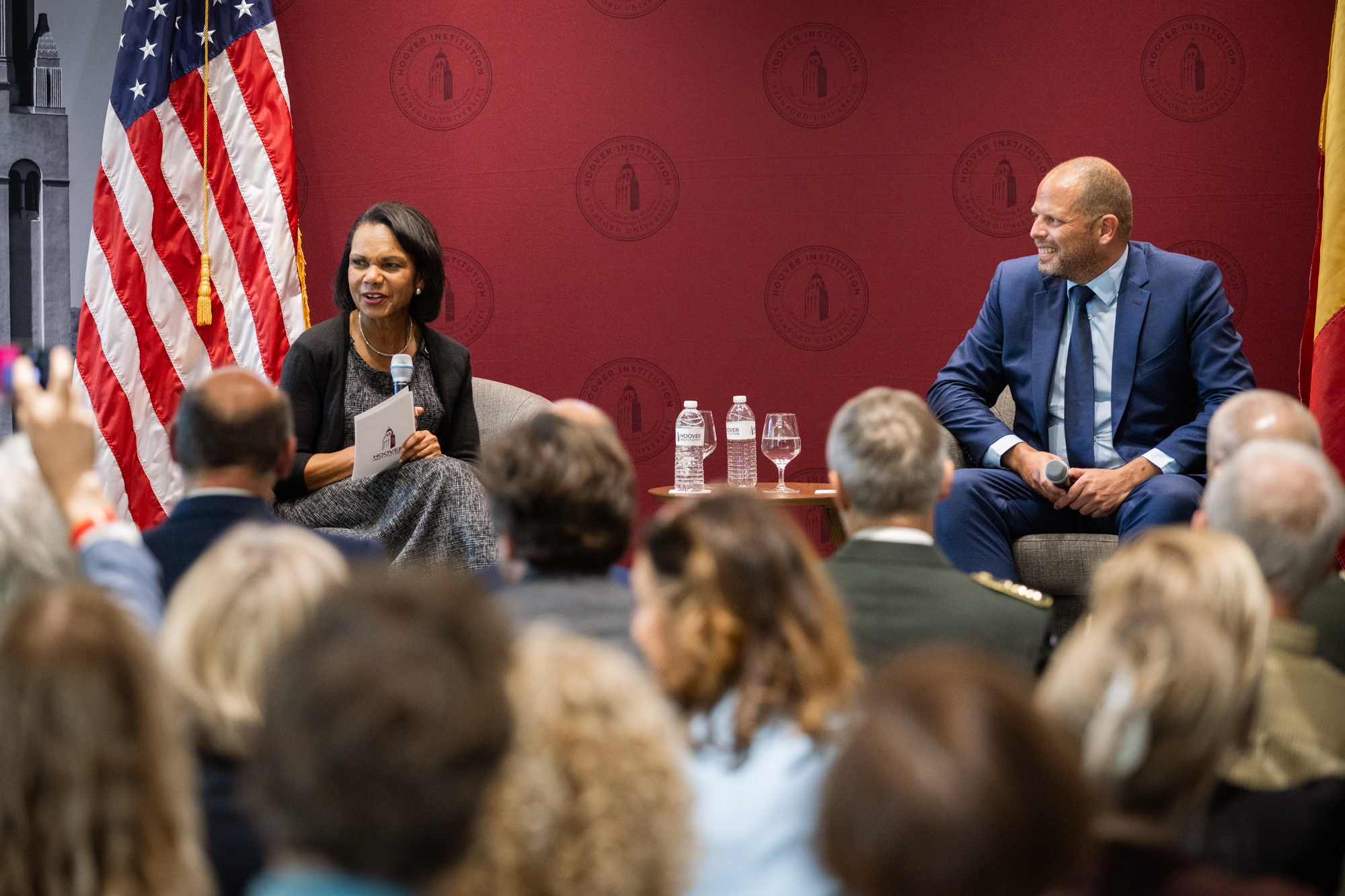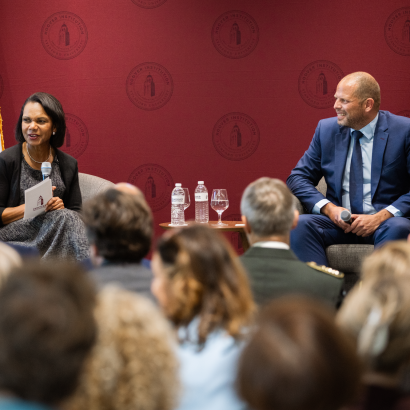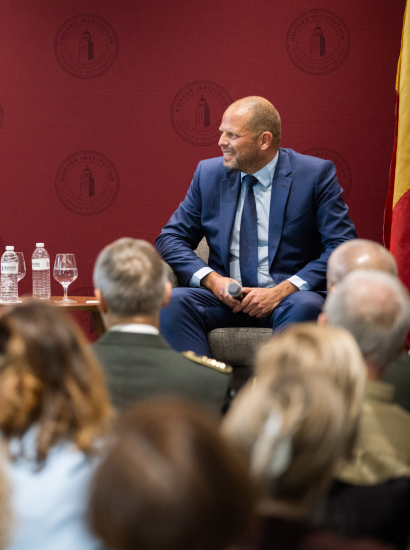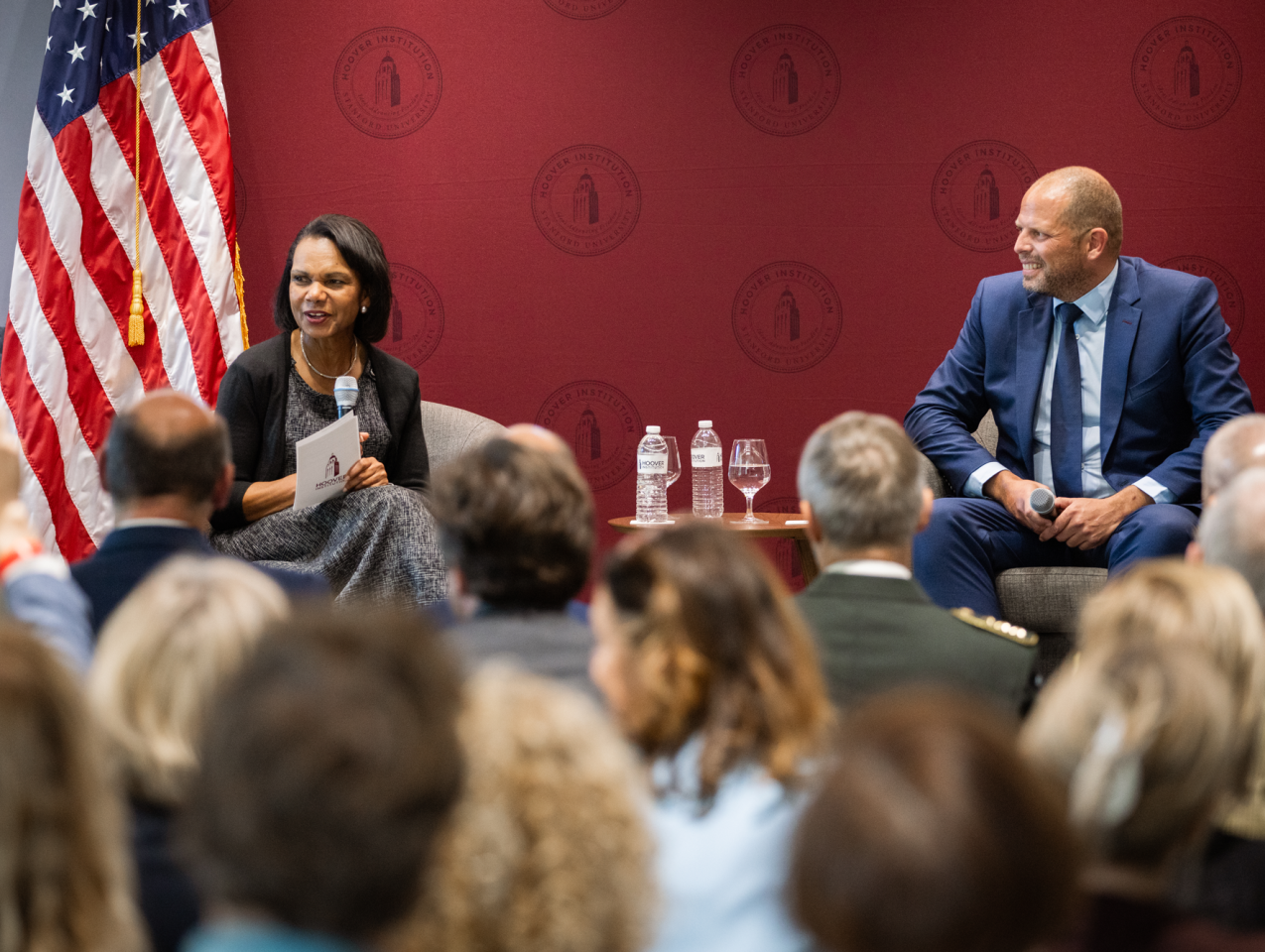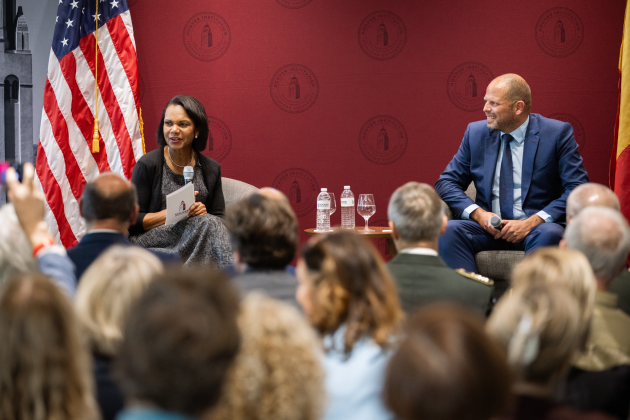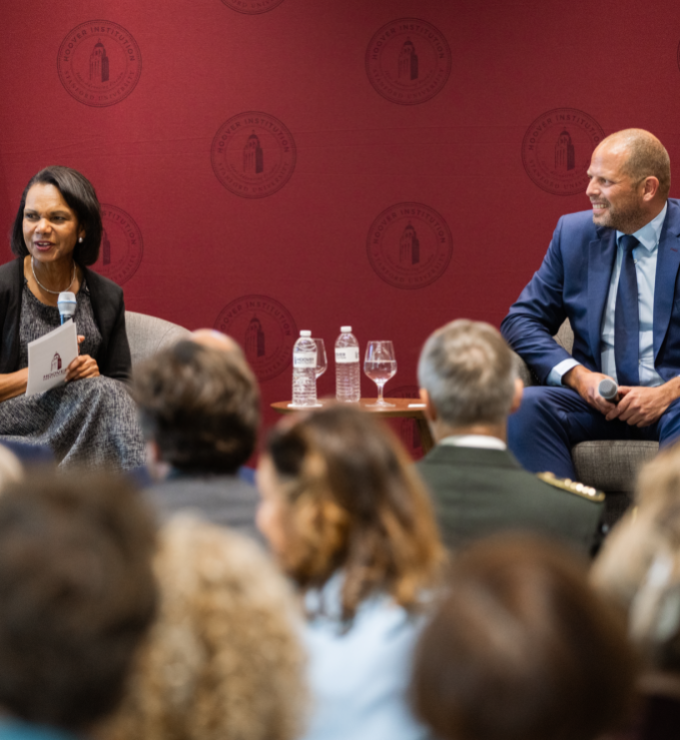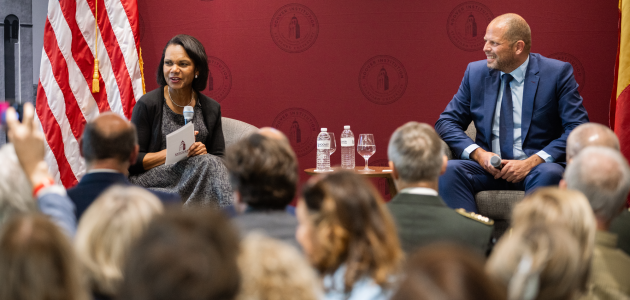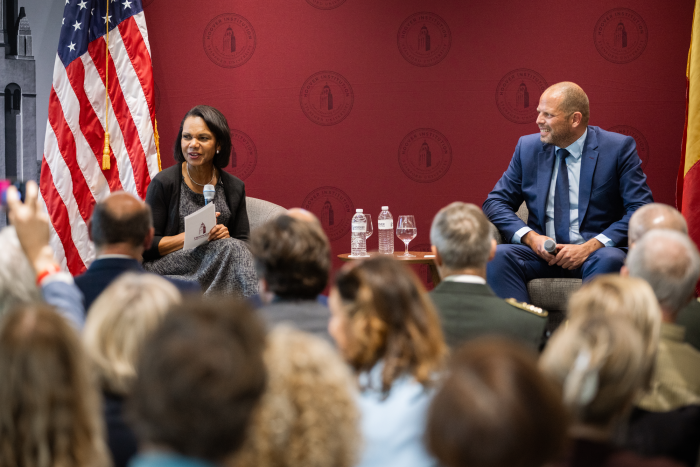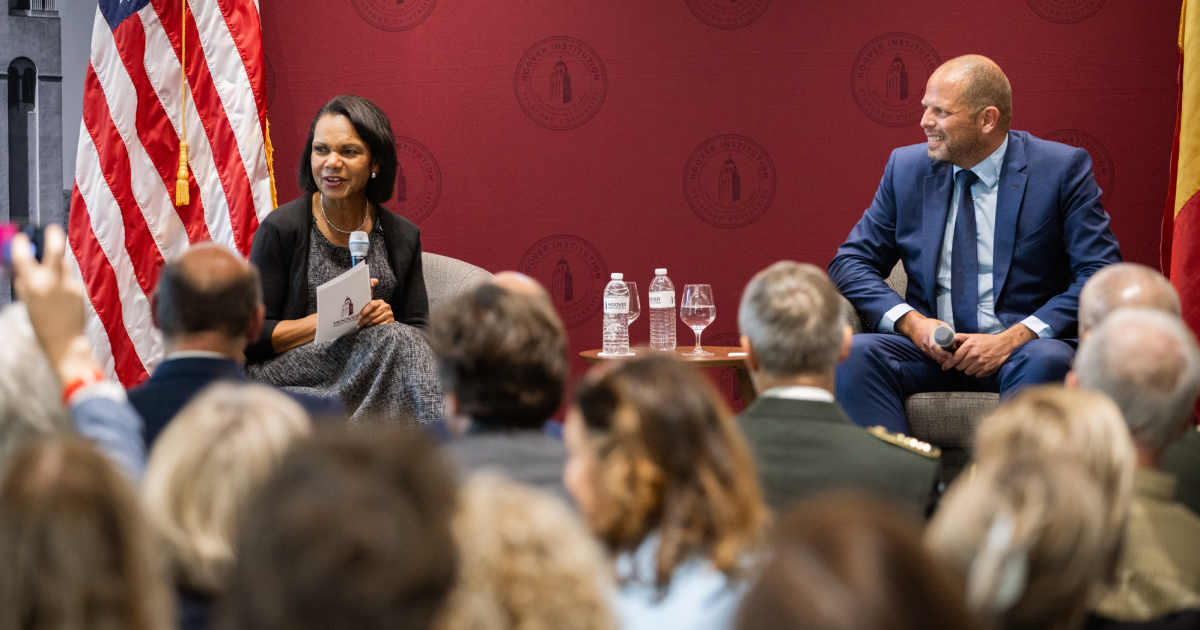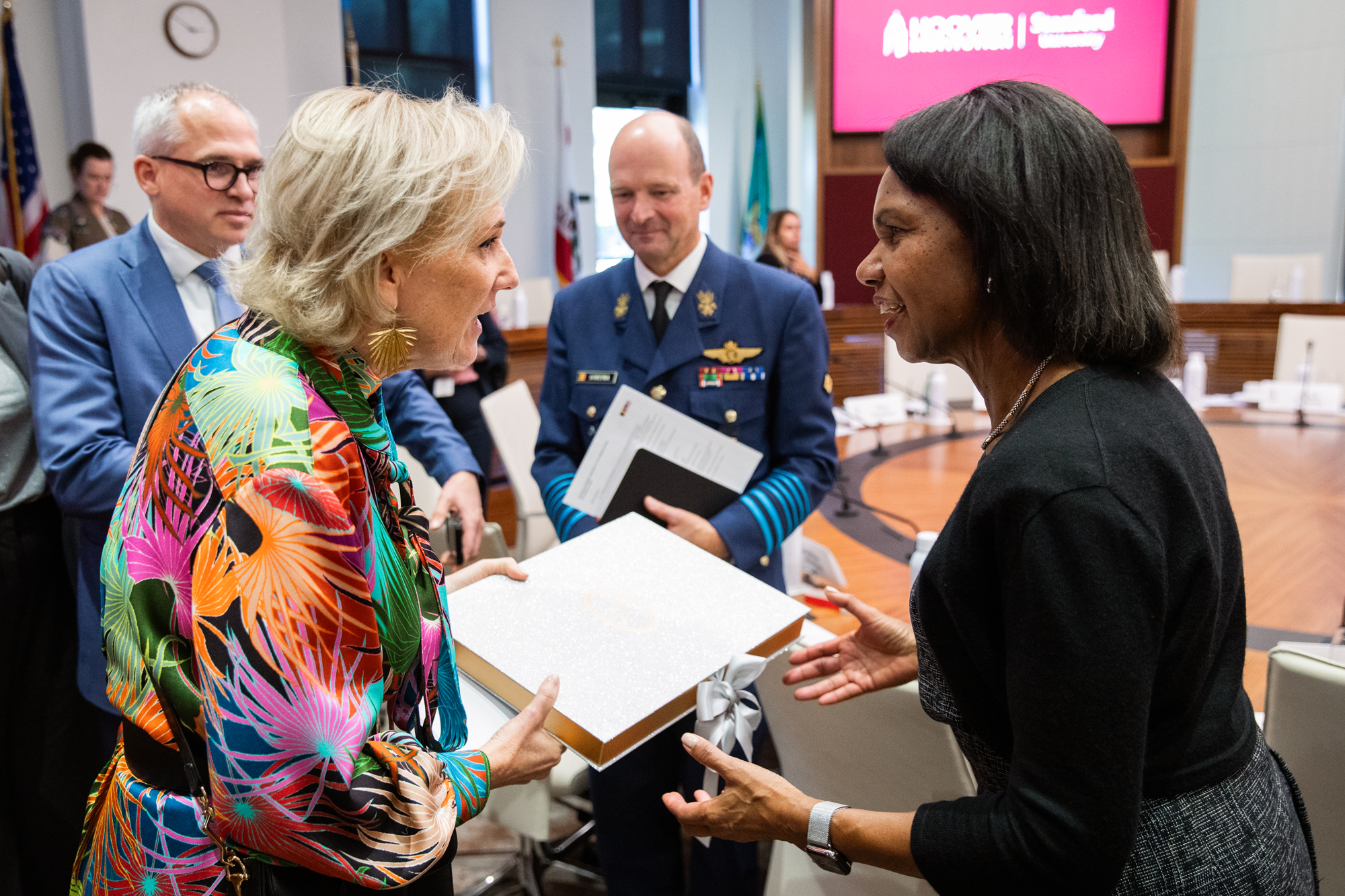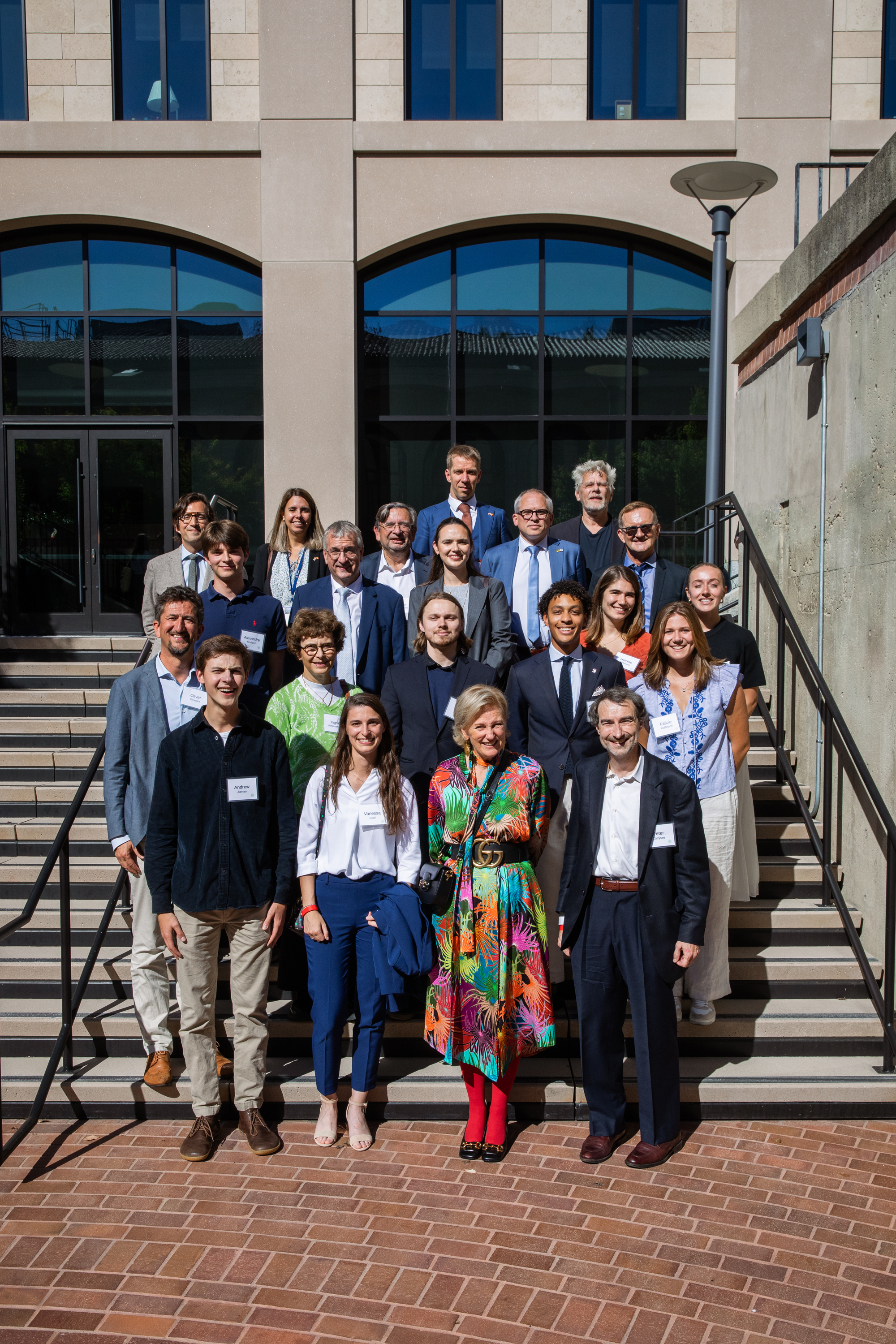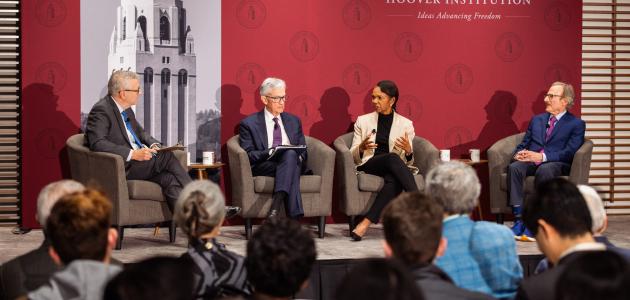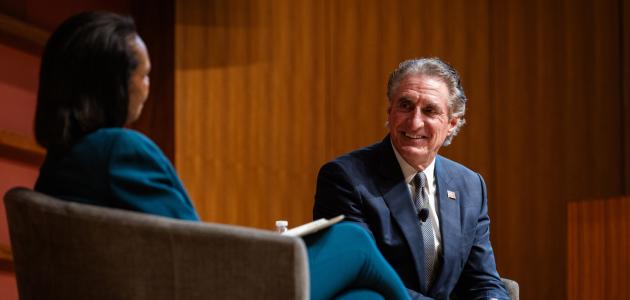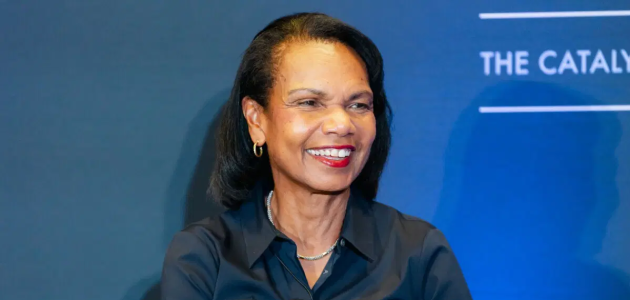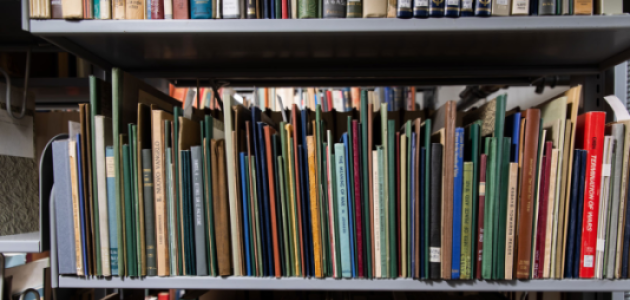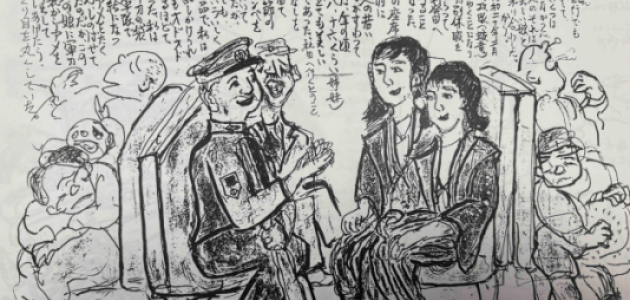Hoover Institution (Stanford, CA)—Belgium’s Princess Astrid and Minister of Defence Theo Francken brought a delegation of scholars, diplomats, business leaders, and military officers to the Hoover Institution earlier this month.
Francken, Belgium’s minister of defense and minister responsible for foreign trade, told Hoover Institution Director Condoleezza Rice his coalition government, which features four different parties coming together, has brought the country stability at a time when uncertainty abounds in Europe.
Francken, a member of the New Flemish Alliance party in Belgium’s governing coalition, visited Hoover alongside business leaders, scholars, and Her Imperial and Royal Highness Princess Astrid of the Belgian royal family. The delegation was in the Bay Area meeting with leading Silicon Valley firms to generate bilateral investment and trade.
Francken and Princess Astrid’s delegation included officers from all branches of the Belgian armed forces, scholars from some Belgian universities, and representatives from Belgium’s private sector.
Princess Astrid, Francken, and members of their delegation also met with a selection of Hoover scholars, to discuss shared challenges and the enduring nature of the European relationship with America.
Rice and Francken also discussed how Belgium and the Hoover Institution and the wider Stanford community are inexorably linked.
Herbert Hoover’s path to public service started with a relief mission to civilians in Belgium impacted by the German invasion of the country at the start of the First World War.
The 35 bells that make up the carillon atop the Hoover Tower once stood inside Belgium’s Pavilion at the 1939 New York World’s Fair.
Also, Astrid’s brother, Filip, King of the Belgians, studied at Stanford in the mid 1980s, earning a master’s degree.
In addition, the Hoover Institution’s Library & Archives holds significant collections related to Belgium, particularly those concerning Hoover’s World War I relief efforts, as well as documents on the country’s involvement in World War II, its domestic politics, and labor movements.
Looking to the future of the transatlantic relationship between Washington and Brussels, both Francken and Rice celebrated the fact that almost all continental European members of NATO and Canada have agreed to increase defense spending to at least 2 percent of GDP.
Francken said his government is committed to meeting the 2 percent threshold with spending on more personnel, equipment, and military infrastructure beginning in January 2026.
The need for that new defense spending is clear as the security picture in Europe continues to become more challenging. Russia is extending a “hybrid” war effort to disrupt the European Union as its invasion of Ukraine rolls on.
While at Hoover, Princess Astrid also met with a group of Stanford students and faculty with ties to Belgium.
After Francken and Rice’s discussion, Senior Fellows David Brady and Anna Grzymala-Busse spoke about the similarities in political sentiment between the US electorate and voters in Europe, and how authoritarian political movements in Europe may meet their end.







